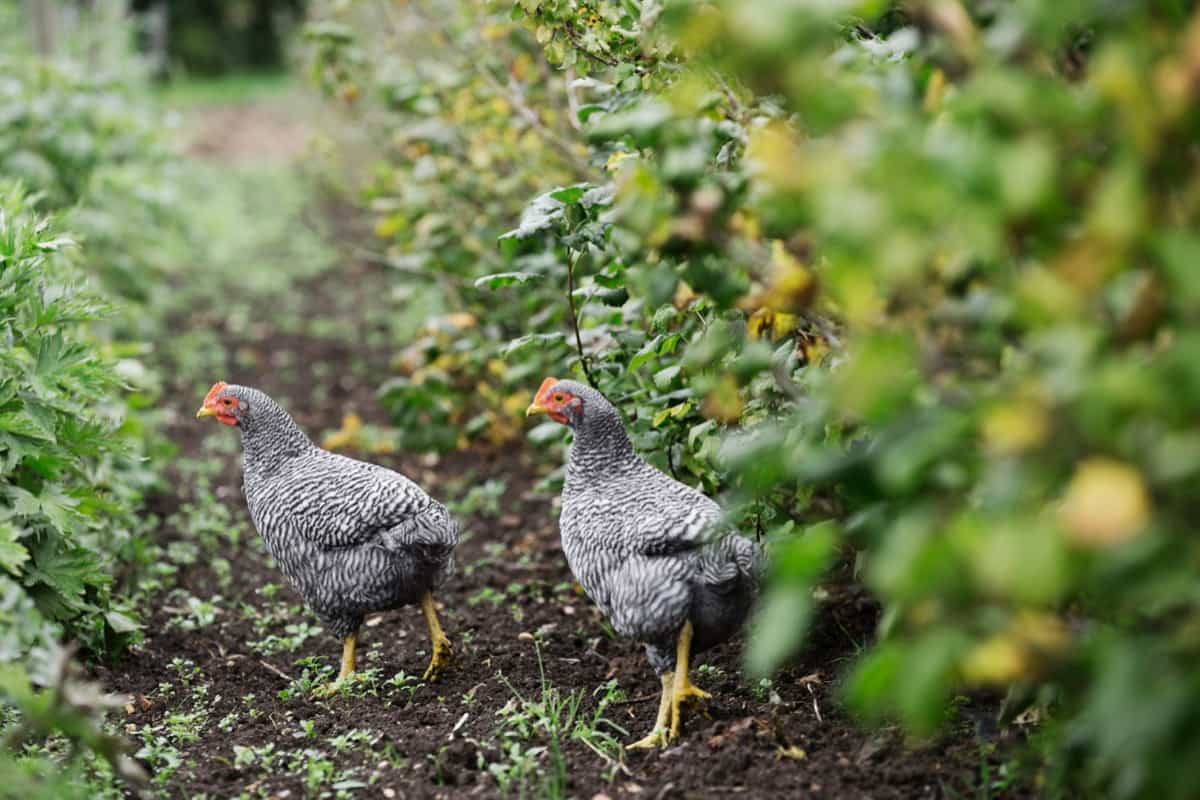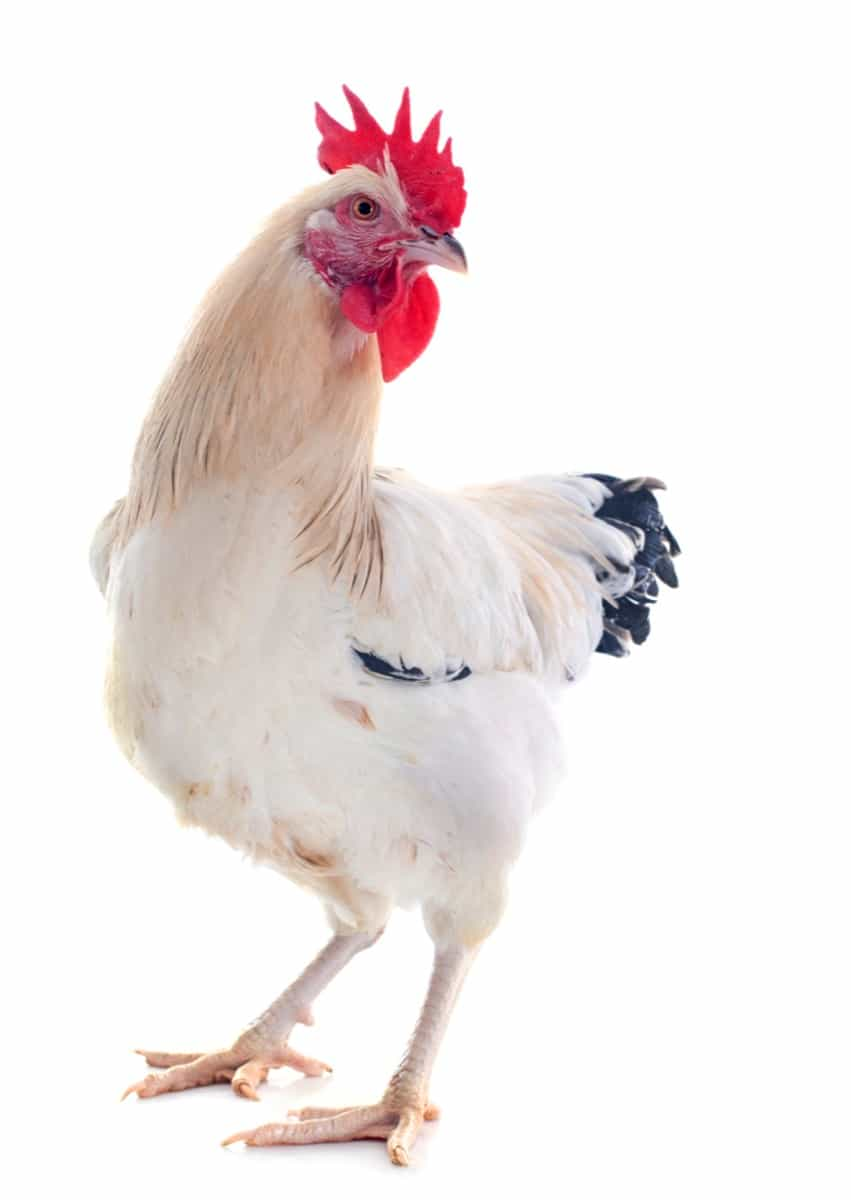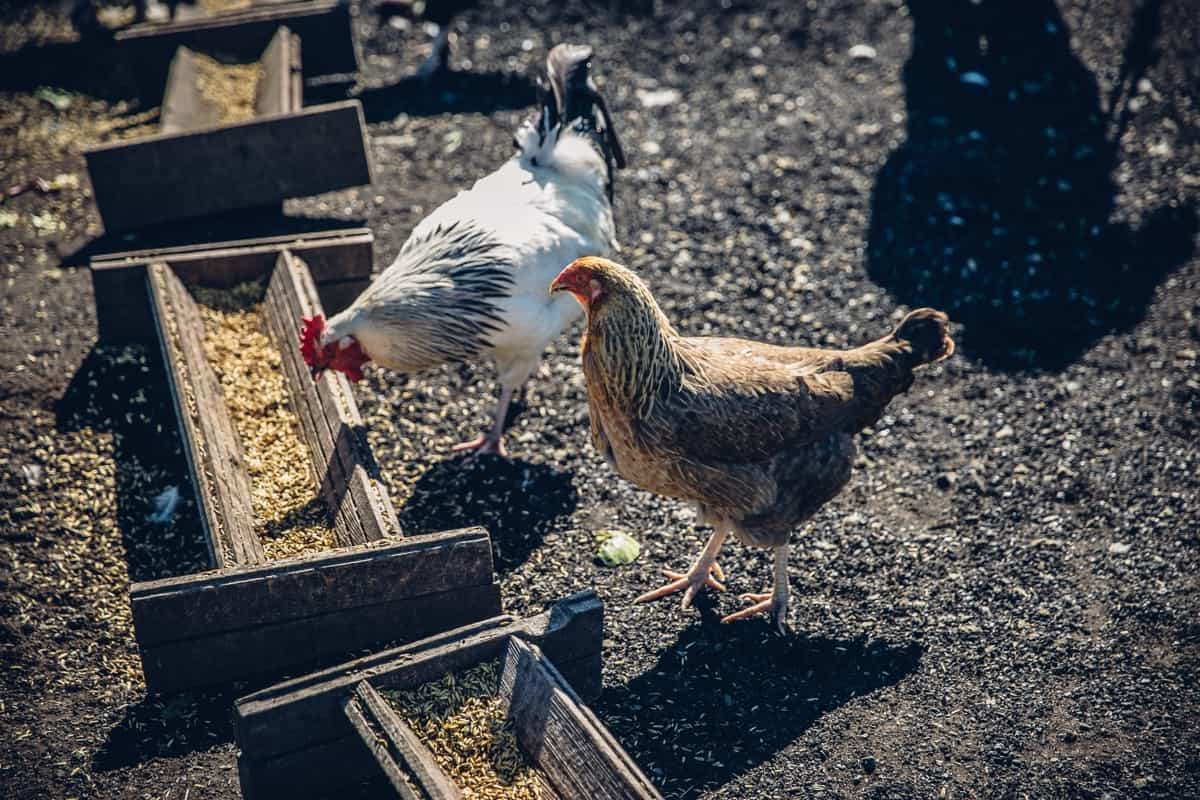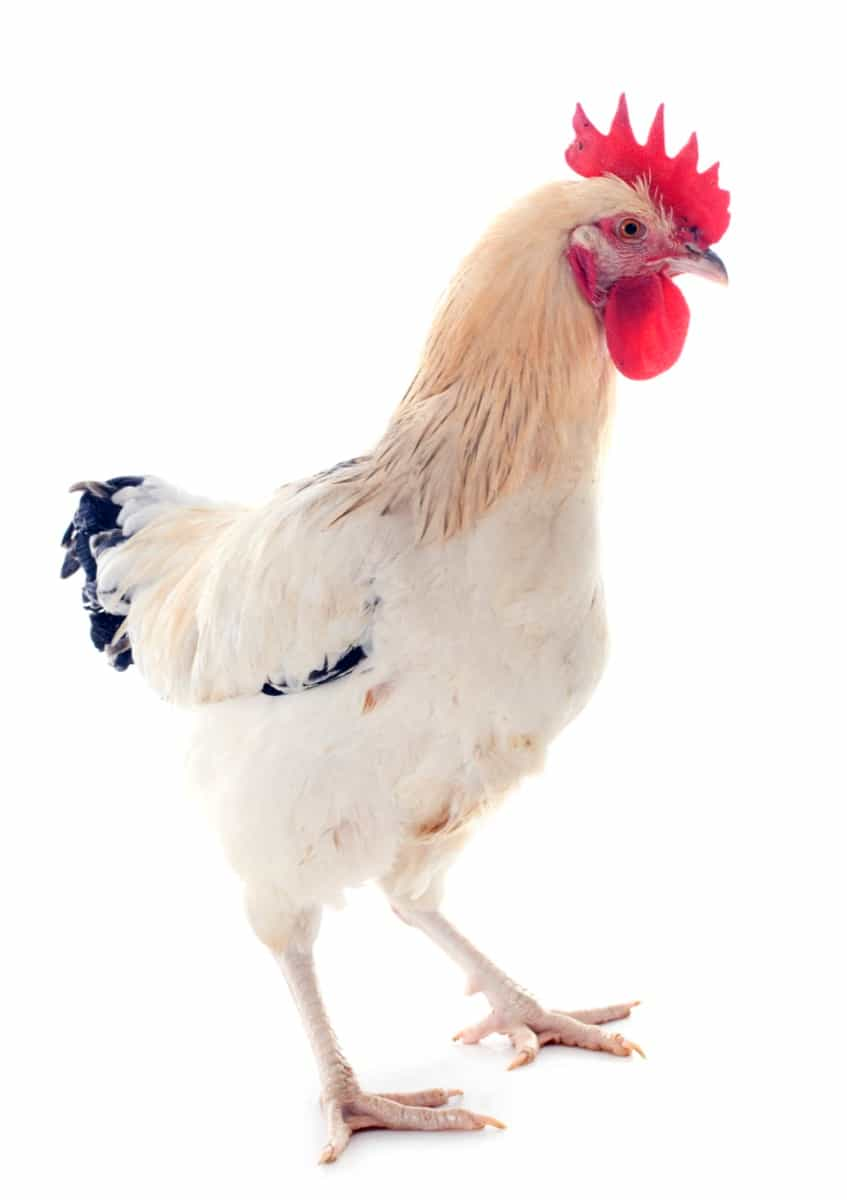Are you considering raising Sussex chickens? Discover essential tips for successful poultry farming. Learn about Sussex chicken varieties, egg production, and the best diet for optimal health. Explore breeding tips, coop requirements, and health management practices to maximize egg yield and ensure the well-being of your flock.

From preventative health measures to winter care and predator protection, we cover everything you need to know about raising Sussex chickens for backyard farming. Explore organic feeding options and nutritional needs to support the lifespan of your Sussex chickens and enjoy the benefits of sustainable poultry farming.
Sussex Chicken Farming
Introduction to Sussex Chickens
Sussex chickens are a dual-purpose breed, meaning they are good for both meat and eggs. They originated in England, where they have been raised for centuries. They are known for their calm and docile temperament, as well as their adaptability to different climates and environments.
History and Breed Characteristics
Sussex chickens were developed in the county of Sussex, England, where they were bred for their meat quality and egg production. They were first recognized by the American Poultry Association in 1914 and have since become one of the most popular breeds in the world. Sussex chickens have a large and sturdy body, with a broad chest and a deep abdomen.
They have a single comb, red earlobes, and white skin. Their feathers are soft, fluffy and come in colors and patterns, such as white, buff, speckled, red, brown, silver, and light. The most common variety is the speckled Sussex, which has a mahogany base color with white spots.
Varieties of Sussex Chickens
Sussex chickens come in eight varieties, each with its unique appearance and personality. The most popular variety is the Speckled Sussex, which has a mahogany base color with white spots. They are friendly pleasantand and make great pets. Light Sussex has a white base color with black markings, making them alert and active. Buff Sussex has a buff or golden base color with black markings, making them gentle and calm.
Red Sussex has a red base color with black markings, making them hardy and resilient. Brown Sussex has a brown base color with black markings, making it rare and difficult to find. Silver Sussex has a silver or gray base color with black markings, making it elegant and beautiful. Coronation Sussex has a white base color with lavender markings, making it rare and expensive.
Creating the Right Environment
Coop Design and Space Requirements
Sussex chickens require ample space for comfortable movement and natural behaviors. A coop should be well-ventilated, dry, clean, and secure, with enough roosting bars, nesting boxes, feeders, and waterers for the number of birds. In cold climates, the coop should be insulated with a heat source, while in hot climates, it should have shade and ventilation to prevent overheating.
Security Against Predators
- Enclose the coop and run with sturdy materials like wire mesh, wood, or metal.
- Bury wire mesh at least 12 inches underground to prevent digging predators from entering.
- Cover the top of the run with wire mesh or netting to prevent aerial predators from swooping down.
- Lock the coop door at night and check it regularly for signs of damage or intrusion.
Requirements for Backyard Farming
- Follow local laws and regulations, including restrictions on the number, size, and type of chickens.
- Consult with neighbors about noise, smell, and pest concerns.
- Be respectful and responsible for your flock’s impact on the environment and community, such as proper manure disposal, controlling flies and rodents, and keeping noise levels low.
- Be aware of potential noise concerns and ensure your flock is well-managed.
Feeding Your Sussex Chickens
Sussex chickens are known for their foraging habits and love for food, but they also require a balanced diet to support their growth, health, egg production, and meat quality. They need different types of feed depending on their age and purpose, with chicks needing a starter feed high in protein (18-20%) and low in calcium (0.8-1%) for the first 6-8 weeks, pullets needing a grower feed lower in protein (15-16%) and higher in calcium (1-1.5%) from 8 weeks until they start laying eggs, layers needing a layer feed moderate in protein (16-18%) and high in calcium (3-4%) once they start laying eggs, and meat birds needing a finisher feed high in protein (20-22%) and moderate in calcium (1-2%) from 8 weeks until slaughter.
Sussex chickens can benefit from supplements and treats like grit, oyster shells, apple cider vinegar, garlic, herbs, probiotics, and vitamins. Grit aids digestion by grinding food in their gizzard, oyster shells provide extra calcium for eggshell formation, apple cider vinegar balances water pH levels, garlic boosts the immune system, probiotics improve gut flora and digestion, and vitamins prevent deficiencies and diseases.
Water Management for Sussex Chicken
Water is crucial for the health and well-being of Sussex chickens, especially during hot weather or egg-laying. It should be provided in easily accessible, clean containers, changed daily, and cleaned regularly to prevent algae, bacteria, or parasite growth. Water containers should be protected from freezing or overheating.
Monitoring water intake can help detect health problems or stress factors affecting productivity or welfare. Water intake varies depending on age, size, breed, diet, temperature, humidity, and activity level. Chickens drink about twice as much water as they eat feed, and low or high intake may indicate dehydration, disease, heat stress, poor water quality, or other issues that need to be addressed.
Egg Production Essentials
Sussex chickens are known for their excellent egg production, laying around 200 to 250 large brown eggs per year. To optimize their egg-laying potential, they need adequate nutrition, lighting, nesting, and hygiene. Nutritionally, they need a balanced diet with enough protein, calcium, phosphorus, and other nutrients for egg formation. Lighting is crucial, especially during winter months when natural daylight is shorter.
In case you missed it: How to Raise Wyandotte Chickens: A Profitable Wyandotte Farming for Beginners

Nesting is essential for comfort and security, and clean, dry, and dark boxes are necessary. Hygiene is crucial to prevent diseases and parasites that can affect egg quality and quantity. The coop and nesting boxes should be cleaned regularly and disinfected as needed. Eggs should be collected daily and stored in a cool, dry place. Eggs should be handled gently and stored at a temp of 10°C (50°F) relative humidity of 75%. Washing eggs before use or incubation is essential to prevent spoilage or infection.
Health and Wellness
Preventative health measures for Sussex chickens include a balanced diet, clean water, adequate space, proper ventilation, appropriate bedding, regular cleaning, vaccination, biosecurity, parasite control, and quarantine. A balanced diet provides nutrients for growth, maintenance, reproduction, and immunity.
Clean water prevents dehydration and waterborne diseases. Adequate space allows natural behaviors; proper ventilation ensures fresh air circulation and appropriate bedding provides comfort. Regular cleaning removes waste materials, and vaccination protects against infectious diseases like Marek’s disease.
Breeding Sussex Chickens
Sussex chickens are easy to breed due to their natural fertility and broody nature. They can mate year-round but are more active in spring and summer. To breed, you need a rooster and a few hens of the same variety, which can be chosen from eight recognized varieties: light, red, speckled, brown, buff, silver, white, and coronation. To provide a comfortable and secure coop, clean water, food, and calcium supplements, you need to ensure the hens lay 4-5 eggs per week.
You can either collect and incubate the eggs artificially or let the hens hatch naturally. If you choose the natural method, you need to mark the eggs and remove unwanted ones daily. Monitor the broody hen’s condition and ensure she gets enough food and water. The incubation period for Sussex chicken eggs is about 21 days, and you can candle the eggs after ten days to check for development.
Rearing Chicks of Sussex chickens
After hatching chicks, ensure they are kept in a warm, safe brooder with a heat lamp or heating pad. They should also receive fresh water, chick starter feed, and grit for digestion. Introduce treats like mealworms or chopped greens after a week or two, but ensure they get enough protein from their main feed. Keep the chicks in the brooder for 6-8 weeks, gradually lowering the temperature by 5 degrees every week until it reaches room temperature.
Introduce them to the outside world by letting them out for short periods in a secure run or pen. When fully feathered, introduce them to the main flock gradually, placing them in a separate coop or cage near the main coop. Allow them to mingle with older birds during supervised free-ranging sessions, and provide extra feeders and waterers to prevent competition and bullying.
Flock Management in Sussex Chickens
Sussex chickens are sociable and easy-going birds that are well-behaved with other breeds of chickens and other animals. They have a balanced pecking order that doesn’t cause much trouble or stress. However, regular monitoring and intervention are necessary to ensure their health and well-being. To maintain their health:
- Provide enough space in their coop and run, roosting bars, nesting boxes, clean and dry coop, and frequent bedding changes.
- Feed them fresh water, food, treats, and entertainment items like perches, swings, toys, or dust baths.
- Check your flock for signs of illness or injury daily and treat accordingly.
- Protect them from predators like foxes, hawks, raccoons, or dogs using fences, nets, locks, or alarms.
- Prevent pests and parasites like mites, lice, worms, or fleas using natural or chemical remedies.
- Vaccinate them against common diseases like Marek’s disease, Newcastle disease, or infectious bronchitis.
Seasonal Care for Sussex chicken
Sussex chickens are adaptable birds that can handle various climates and weather conditions. To keep them warm and dry in winter, insulate their coop, provide extra bedding, and use heaters or heat lamps if necessary. Prevent freezing of water and food by using heated waterers and feeders, and provide extra calories and protein through feed and treats. Apply petroleum jelly or coconut oil to prevent frostbite on combs and wattles.
In case you missed it: Ultimate Guide to Raising Brahma Chickens: Care, Feeding, Egg Production, and Breeding

In summer, keep the flock cool and hydrated by providing shade, fans, or misters, fresh water, and ice cubes, and avoiding overfeeding or treats. Prevent heat stress or stroke by monitoring signs of panting, drooping wings, or lethargy. In spring and fall, maintain the flock’s health and happiness by allowing them to enjoy mild weather and fresh grass. Prepare them for the upcoming season changes by adjusting their diet and environment and monitoring for molting and egg production issues.
Pest and Disease Prevention
Sussex chickens are generally healthy and robust birds, but they are susceptible to common poultry problems that can affect their well-being and productivity. To prevent these issues, follow good hygiene and farming practices. Common pests and diseases that can affect Sussex chickens include mites and lice, worms, fleas, coccidiosis, Marek’s disease, Newcastle disease, and infectious bronchitis.
Mites and lice are tiny insects that live on the skin, feathers of chickens, causing irritation, itching, feather loss, anemia, or infections. To prevent them, keep the coop clean and dry, use diatomaceous earth or wood ash in bedding, spray the coop and birds with natural or chemical insecticides, or dust the birds with poultry dust or permethrin.
Worms are internal parasites that live in the digestive system of chickens, causing weight loss, diarrhea, reduced appetite, or reduced egg production. Fleas are external parasites that live in the blood of chickens, causing irritation, itching, anemia, or infections. To prevent them, keep the coop clean and dry, provide fresh water and food, avoid overcrowding or stress, and medicate the birds with coccidiostats or antibiotics.
Marek’s disease is a viral infection that affects the nervous system of chickens, causing paralysis, tumors, blindness, or death. To prevent it, vaccinate chicks at hatch, keep the coop clean and sanitary, avoid contact with wild birds or rodents, or cull infected birds. Infectious bronchitis is another viral infection that affects the respiratory system of chickens, causing sneezing, coughing, gasping, discharge from the eyes or nose, or death.
Handling and Behavior of Sussex Chicken
Sussex chickens are generally calm, docile birds that enjoy human interaction. They are not aggressive or flighty, and they can get along well with other breeds. However, they can be curious and adventurous, so they need a secure coop and run to prevent them from wandering off or getting into trouble. It would help if you also handled them gently and regularly from a young age to make them more tame and trusting.
Diet Adjustments for Sussex chicken
Sussex chickens are not picky eaters, and they will happily eat a balanced commercial feed that meets their nutritional needs. However, they also love to forage for insects, seeds, grasses, and other treats in the garden. Supplement their diet with fresh fruits, vegetables, grains, and occasional mealworms or earthworms. However, you should avoid giving them too many treats or scraps, as they can easily become overweight and prone to health problems. You should also provide them with fresh water at all times.
In case you missed it: Ultimate Guide to Raising Leghorn Chickens: Feeding, Breeding, Egg Production, and Care

Egg-Laying Health Issues
Sussex chickens are prolific layers that can produce about 250 eggs per year. Their eggs are large and tinted in color, ranging from cream to light brown. They usually start laying at around 5 to 6 months of age, and they can continue laying for several years. However, they may experience some egg-laying health issues, such as egg binding, prolapse, or vent gleet.
In case you missed it: Strategies for Maximizing Egg Production in Your Chicken Farm: Tried and Tested Strategies

To prevent these issues, you should ensure that your hens have enough calcium, protein, and vitamins in their diet, as well as access to nesting boxes, perches, and dust baths. You should also check their vents regularly for signs of infection or injury.
Record Keeping and Improvement
If you want to keep track of your Sussex chickens’ performance and improvement, you should keep records of their egg production, weight gain, health status, and pedigree. You can use a notebook, a spreadsheet, or an online app to record these data. By keeping records, you can monitor your chickens’ progress and identify any problems or areas of improvement. You can also use these records to select the best birds for breeding or showing purposes.
Sussex Chicken for Backyard Farming
Sussex chickens great choice for backyard farming because they are versatile, productive, and friendly. They can provide you with eggs and meat of excellent quality and flavor, as well as companionship and entertainment. They are also easy to care for and adaptable to different climates and environments. If you are looking for a reliable and rewarding breed of chicken to raise in your backyard, you should consider the Sussex chicken.
In case you missed it: Innovations in Poultry Farming: Technology and Automation

Conclusion
Raising Sussex chickens involves understanding their varieties, optimizing egg production through proper care and diet adjustments, managing flock health, and preventing pest and disease issues. By implementing these farming practices, you can successfully raise healthy and productive Sussex chickens for backyard farming.
Note: The images presented in this post are intended solely for representation purposes. The images are meant to serve as visual aids and should not be relied upon as accurate representations of their real-life counterparts.
- Types of Pesticides Used in Agriculture: A Beginner’s Guide
- Economical Aquaculture: A Guide to Low-Budget Fish Farming
- 15 Common Planting Errors That Can Doom Your Fruit Trees
- How to Make Houseplants Bushy: Effective Tips and Ideas
- Innovative Strategies for Boosting Coconut Pollination and Yield
- Pollination Strategies for Maximum Pumpkin Yield
- The Complete Guide to Chicken Fattening: Strategies for Maximum Growth
- Natural Solutions for Tulip Problems: 100% Effective Remedies for Leaf and Bulb-Related Issues
- Revolutionizing Citrus Preservation: Towards a Healthier, Greener Future
- Natural Solutions for Peony Leaf and Flower Problems: 100% Effective Remedies
- Maximizing Profits with Avocado Contract Farming in India: A Comprehensive Guide
- Natural Solutions for Hydrangea Problems: 100% Effective Remedies for Leaf and Flowers
- The Ultimate Guide to Choosing the Perfect Foliage Friend: Bringing Life Indoors
- From Sunlight to Sustainability: 15 Ways to Use Solar Technology in Agriculture
- The Ultimate Guide to Dong Tao Chicken: Exploring from History to Raising
- The Eco-Friendly Makeover: How to Convert Your Unused Swimming Pool into a Fish Pond
- Mastering the Art of Delaware Chicken Farming: Essentials for Healthy Backyard Flocks
- 20 Best Homemade Fertilizers for Money Plant: DIY Recipes and Application Methods
- How to Craft a Comprehensive Free-Range Chicken Farming Business Plan
- Brighten Your Flock: Raising Easter Egger Chickens for Beauty and Bounty
- How to Optimize Your Poultry Egg Farm Business Plan with These Strategies
- Subsidy for Spirulina Cultivation: How Indian Government Schemes Encouraging Spirulina Farmers
- Ultimate Guide to Raising Dominique Chickens: Breeding, Feeding, Egg-Production, and Care
- Mastering the Art of Raising Jersey Giant Chickens: Care, Feeding, and More
- Ultimate Guide to Raising Legbar Chickens: Breeding, Farming Practices, Diet, Egg-Production
- How to Raise Welsummer Chickens: A Comprehensive Guide for Beginners
- How to Protect Indoor Plants in Winter: A Comprehensive Guide
- Ultimate Guide to Grow Bag Gardening: Tips, Tricks, and Planting Ideas for Urban Gardeners
- Guide to Lotus Cultivation: How to Propagate, Plant, Grow, Care, Cost, and Profit
- Agriculture Drone Subsidy Scheme: Government Kisan Subsidy, License, and How to Apply Online
- Ultimate Guide to Raising Araucana Chickens: Breed Profile, Farming Economics, Diet, and Care
- Bringing Hydroponics to Classroom: Importance, Benefits of Learning for School Students
- Ultimate Guide to Raising Polish Chickens: Breed Profile, Farming Economics, Diet, and Care
- Ultimate Guide to Raising Australorp Chickens: Profile, Farming Economics, Egg Production, Diet, and Care
- Silkie Chicken Farming: Raising Practices, Varieties, Egg Production, Diet, and Care
- Sussex Chicken Farming: Raising Practices, Varieties, Egg Production, Diet and Care